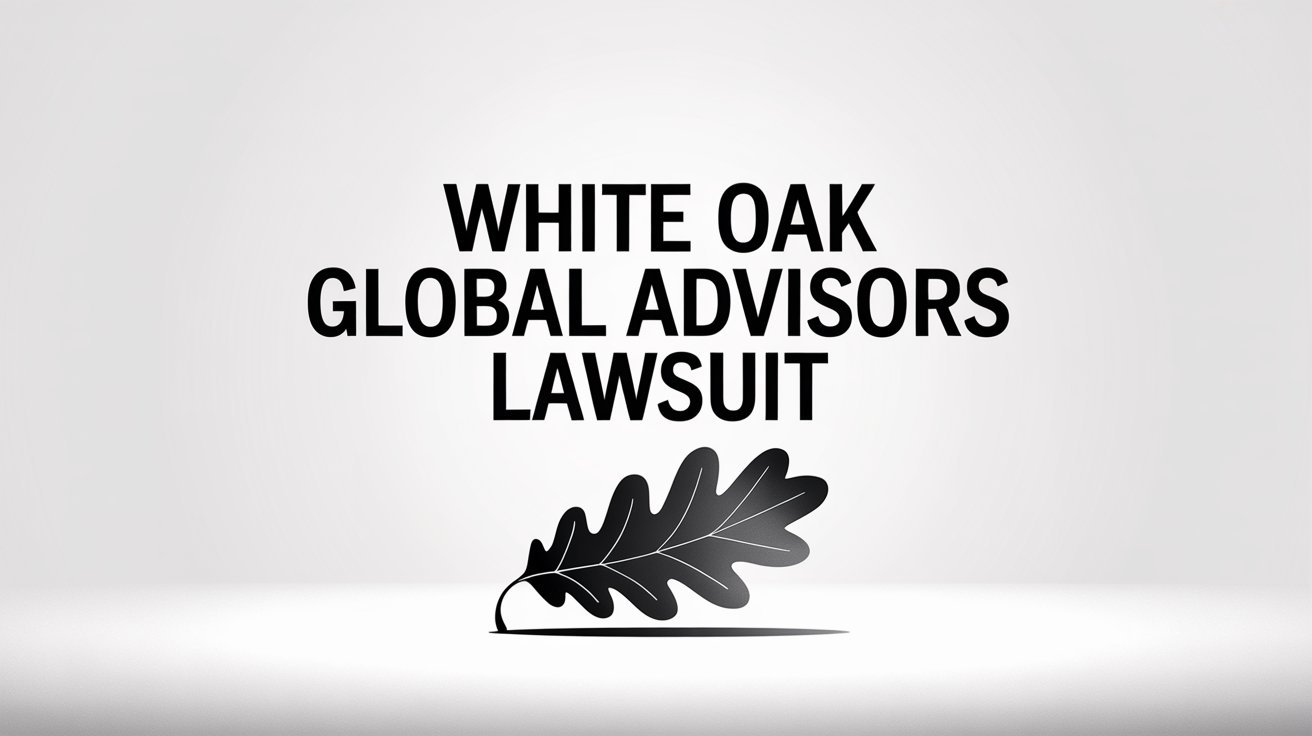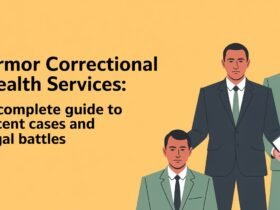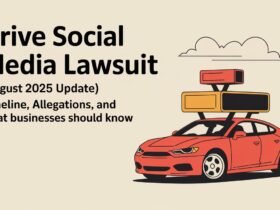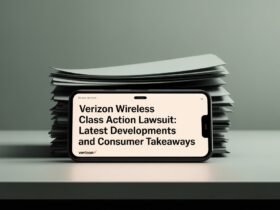Introduction
The phrase white oak global advisors lawsuit has surfaced repeatedly in legal and financial news over the past few years, drawing the attention of investors, pension trustees, and private equity professionals. White Oak Global Advisors, a private credit and direct lending firm, has been involved in multiple high-profile disputes ranging from arbitration confirmation battles under ERISA to executive ouster litigation in Delaware courts. These cases are not only important because of their financial stakes—sometimes exceeding hundreds of millions of dollars—but also because of the legal precedents they set for fiduciary duties, arbitration enforcement, and governance of LLC-structured firms. This article provides a comprehensive and updated overview of the lawsuits involving White Oak Global Advisors as of 2025, explaining their origins, progress, and potential consequences.
Who Is White Oak Global Advisors?
White Oak Global Advisors is a private credit investment firm headquartered in San Francisco with a reputation for providing direct lending solutions to middle-market companies. Since its founding, the firm has raised billions of dollars in commitments and built a strong presence in sectors such as healthcare finance and asset-based lending. While White Oak has attracted attention for its rapid growth and innovative deal structures, it has also been drawn into contentious disputes. These lawsuits offer valuable lessons about fiduciary obligations, contract interpretation, and corporate governance within the alternative investment space.
The ERISA Arbitration Dispute: NYSNAPP v. White Oak
One of the most prominent matters involving White Oak is the NYSNAPP v. White Oak Global Advisors lawsuit. The dispute began when the trustees of the New York State Nurses Association Pension Plan (NYSNAPP) raised claims that White Oak had breached its fiduciary duties under ERISA (the Employee Retirement Income Security Act). At the heart of the conflict were disagreements over investment management agreements, fees, and whether the firm had unjustly profited from its role.
The case initially went to arbitration, where an award was issued against White Oak that included disgorgement of certain fees and interest. White Oak resisted the enforcement of this award, arguing that the federal court lacked jurisdiction. However, in 2022 the Southern District of New York confirmed the award “in all material respects,” holding that ERISA provided an independent basis for federal jurisdiction. This was significant because it clarified that arbitration awards in fiduciary cases could be enforced in federal court even after the Supreme Court’s restrictive Badgerow decision.
On appeal, the Second Circuit issued a partial ruling in May 2024. The court affirmed the district court’s authority and upheld the award of pre-award interest and the disgorgement of so-called “Day One” fees. However, it vacated and remanded parts of the award relating to “profits” disgorgement and attorney fees, finding the arbitral record unclear on these points. The remand means that White Oak may still face additional financial exposure depending on how the lower court resolves these ambiguities. For ERISA fiduciaries and plan managers, this case underscores the risks of unclear fee arrangements and highlights the federal courts’ willingness to enforce arbitral remedies when fiduciary breaches are alleged.
The Soleimani Case: Delaware Ouster and Buyout Dispute
Another major chapter in the white oak global advisors lawsuit narrative involves a bitter fight between White Oak Healthcare Finance and its former executive, Zvi Soleimani. Soleimani was a manager with equity and revenue-sharing rights under LLC agreements and related term sheets. When White Oak attempted to remove him from his position, the dispute centered on whether the firm could terminate his management role without first buying out his stake at fair market value.
In April 2024, the Delaware Court of Chancery sided with Soleimani. The court ruled that the termination was invalid unless the company honored the buyout provisions, which could entitle Soleimani to as much as $143 million. The decision reflected Delaware’s long-standing emphasis on enforcing contracts as written and refusing to allow companies to avoid economic obligations through clever structuring. White Oak appealed, but in September 2024 the Delaware Supreme Court affirmed the Chancery ruling in full.
This outcome was a wake-up call for private equity and credit managers who rely on complex LLC structures. The ruling highlights the importance of drafting clear removal provisions and aligning them with economic exit terms. Without such clarity, firms risk expensive litigation and the possibility of being forced into multimillion-dollar buyouts. Interestingly, Soleimani also filed a separate federal lawsuit against White Oak in the Southern District of New York in 2025, but that case was dismissed on procedural grounds, leaving the Delaware victory as the controlling precedent.
Additional Litigation Involving White Oak
Beyond these headline disputes, White Oak has been involved in other litigation that sheds light on its business practices and legal risks.
Guaranty Enforcement: White Oak v. Clarke
In March 2025, a federal judge in the Southern District of New York allowed White Oak’s guaranty enforcement case against Clarke and others to proceed. The dispute involved obligations under a multimillion-dollar loan, and while White Oak sought an early ruling, the court declined to short-circuit discovery. This demonstrates the challenges lenders face when attempting to enforce guarantees without a complete factual record, even when the contractual language appears strong.
Loan Dispute: White Oak v. Scopetta
In a separate case in New York state court, White Oak pursued claims tied to a $10 million loan and guaranty. The court dismissed some claims but allowed indemnification-related causes of action to proceed. These incremental disputes may not make national headlines, but together they reflect the aggressive posture White Oak takes in enforcing its lending agreements and the equally aggressive defenses raised by counterparties.
Timeline of Key Events
To better understand the progression of the white oak global advisors lawsuit matters, here is a simplified timeline:
- 2013–2016: White Oak enters investment management agreements with NYSNAPP.
- 2021: NYSNAPP petitions to confirm arbitration award.
- 2022: District court confirms the award; jurisdiction upheld.
- April 2024: Delaware Chancery Court rules in favor of Soleimani.
- May 2024: Second Circuit affirms in part, vacates in part the ERISA arbitration award.
- September 2024: Delaware Supreme Court affirms Soleimani judgment.
- March 2025: Clarke guaranty litigation continues in S.D.N.Y.
- July 2025: Soleimani’s federal case dismissed, leaving Delaware ruling intact.
Legal Issues at the Heart of the Cases
These lawsuits collectively touch on several critical legal issues:
- ERISA Fiduciary Duties – The NYSNAPP case demonstrates how fiduciary standards can lead to significant disgorgement awards and how arbitration agreements interact with federal jurisdiction.
- LLC Governance and Termination Rights – The Soleimani dispute shows how Delaware courts prioritize contractual language and enforce buyout provisions before permitting managerial removal.
- Guaranty Enforcement in Lending – The Clarke and Scopetta matters reflect common issues in credit enforcement, including indemnification, defenses, and the role of discovery in contract disputes.
Implications for Stakeholders
The outcomes of these cases carry broad implications:
- For Pension Plans and Limited Partners: The NYSNAPP victory reinforces the ability of plan fiduciaries to hold managers accountable, even through arbitration, and to recover fees and interest tied to fiduciary breaches.
- For Private Equity and Credit Managers: The Soleimani decision warns firms about the risks of improperly structured removal rights and signals that courts will strictly enforce economic buyout obligations.
- For Borrowers and Guarantors: The Clarke and Scopetta disputes show that while lenders like White Oak can pursue aggressive enforcement, defendants can still raise meaningful defenses that delay or narrow recovery.
How to Follow These Cases
For those interested in ongoing developments, primary sources are available through federal court dockets, Delaware Chancery and Supreme Court opinions, and legal databases such as Justia and CourtListener. Trade press outlets like Bloomberg Law also provide summaries, though the most reliable way to track rulings is to review the actual opinions.
FAQs
What is the White Oak Global Advisors lawsuit about?
It refers to multiple disputes, primarily an ERISA arbitration confirmation case involving a nurses’ pension plan and a Delaware case over executive ouster and buyout rights.
Did the pension plan win against White Oak?
Yes, largely. The arbitration award was confirmed, though some elements such as profit disgorgement were remanded for clarification.
What did Delaware courts decide in the Soleimani case?
Both the Chancery Court and Delaware Supreme Court ruled that Soleimani could not be removed as manager without first receiving a fair market value buyout, a decision worth potentially over $100 million.
Is there a class action against White Oak?
No class action has been reported. The disputes involve arbitration, Delaware corporate law, and contract litigation.
Conclusion
The white oak global advisors lawsuit matters illustrate the complex intersection of finance, fiduciary duty, and corporate governance. From ERISA arbitration enforcement to multimillion-dollar buyouts, these cases demonstrate the high stakes of operating in private credit and direct lending. For investors and managers alike, the lessons are clear: contracts must be drafted with precision, fiduciary obligations must be respected, and litigation risks can arise even for highly sophisticated firms. As of 2025, White Oak Global Advisors continues to navigate the consequences of these rulings, and the broader industry is watching closely.
Also read more interesting topics at mgtimes.co.uk.






Leave a Reply